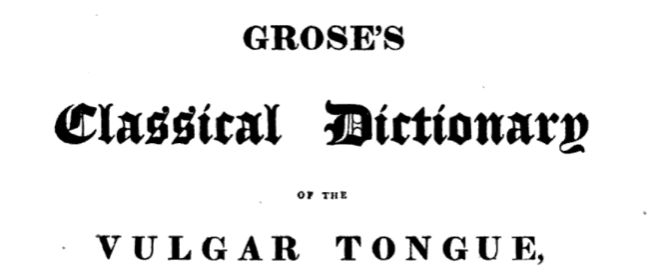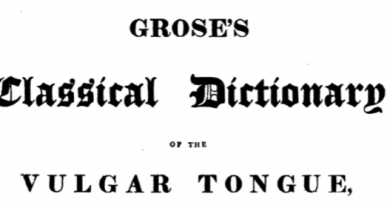Dictionary of the Vulgar Tongue – Day 217
The Dictionary of the Vulgar Tongue was first published at the end of the eighteenth century, and given that the current health crisis is giving too much time to read books, I thought I’d pick a daily word from it until I got bored….
Myrmidons
This is, at first sight, a rather exotic definition for Grose, which he notes means “the constable’s assistants, watchmen, etc”. I’m not an expert in Greek mythology, nor indeed do I have any real knowledge about it at all, so I’m reliant on Wikipedia to tell me:
“Myrmidons were an ancient nation of Greek mythology. In Homer’s Iliad, the Myrmidons are the soldiers commanded by Achilles. Their eponymous ancestor was Myrmidon, a king of Phthiotis who was a son of Zeus and “wide-ruling” Eurymedousa, a princess of Phthiotis. She was seduced by him in the form of an ant. An etiological myth of their origins, simply expanding upon their supposed etymology—the name in Classical Greek was interpreted as “ant-people”, from murmekes, “ants”—was first mentioned by Ovid, in Metamorphoses: in Ovid’s telling, the Myrmidons were simple worker ants on the island of Aegina.”
So, the meaning used by Grose is entirely correct and appropriate, with it being easy to see how it evolved to be used for the police. Given this word isn’t easy to spell, nor actually that easy to pronounce, I’m moderately surprised to see that it lingered on in terms of its usage for quite so long.
The word does though have a long history in English, meaning a sub-ordinate or loyal follower and it was in usage in the medieval period, so it’s not a new word coming into the language.




